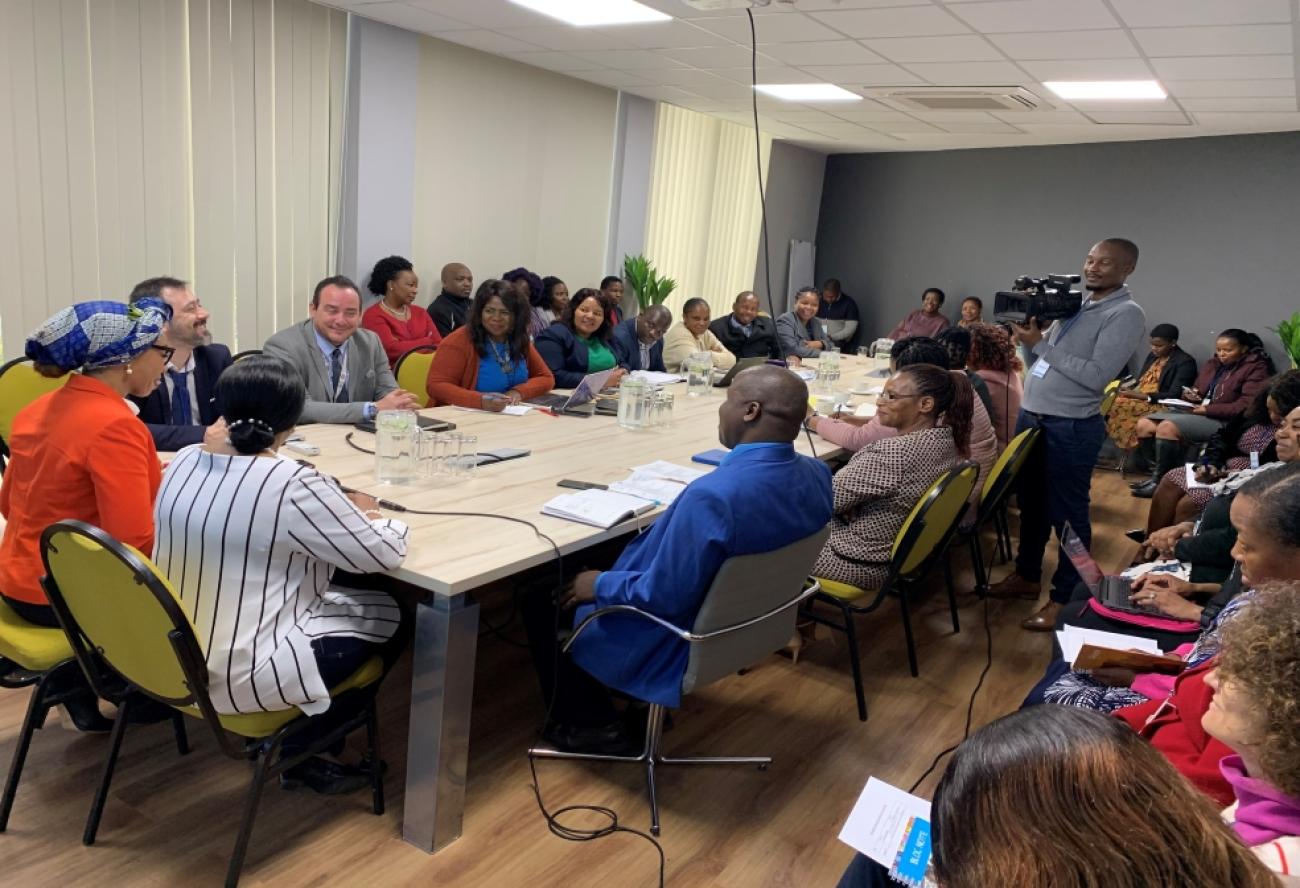The United Nations, through the UNESCO Bureau of Education (IBE), is conducting a 4-day workshop on the proposed strengthening of coordination structures and institutions for early childhood care and education (EECE) in the country.
The was workshop was officially opened by Dr. Mmantsetsa Marope, Director of the IBE-UNESCO. UN Resident Coordinator in Eswatini, Ms. Nathalie Ndongo-Seh, welcomed participants.
The workshop focused on an EECE prototype system created by UNESCO that would take on a multi-sectoral approach, supported by the Office of the Deputy Prime Minister and involving both the Government entities involved in early childhood care, and development partners in creating a coordination framework that would combine their efforts in the most efficient manner possible.
The presentation highlighted the direct impact on the economy that is felt by investing in EECE, noting that those countries that invested more, enjoy much lower GINI indices, and experience a greater percentage of women in their workforces. It was noted that in general, the enrollment rate for pre-primary education is less than 50% globally, while in the Kingdom of Eswatini, less than 30% of children are enrolled in Early Childhood Care and Education, with most of those who are enrolled not receiving quality services.
The UNRC emphasized this point in her remarks by stating that “well framed, ECCE produces healthy, competent, independent and productive members of society. This programme also reduces the failure rates and drop-out rates of pupils because the foundation is strong enough to sustain good results even later in life. This has a direct positive impact to the achievement of other SDGs, including SDG1: No poverty; SDG 2: Zero Hunger and SDG8: Decent work.”
The Eswatini Government, through the Office of the Deputy Prime Minister, has expressed its commitment to investing in the ECCE Prototype System, which is to include legal frameworks, policy planning, curriculum and protocols, standards and regulation, and financing.
The UN in Eswatini stands at the ready to support the development and implementation of the ECCE Prototype System, described by UNESCO as “one of the best investments a country can make to promote human resource development, gender equality and social cohesion, and to reduce the costs for later remedial programmes.”



